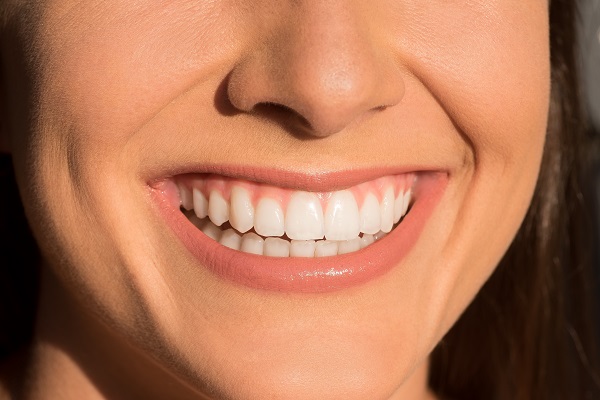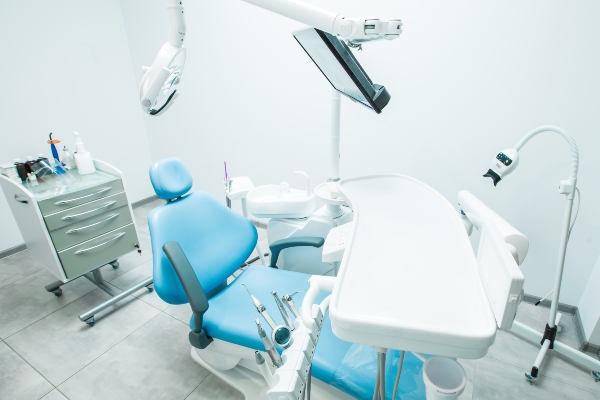Ask a Dentist: How Can Gum Disease be Prevented?

One of the primary focuses of dentists is helping patients prevent gum disease. There are certain services, such as dental cleanings, that dentists can perform in the office to assist with gum disease prevention. However, most preventive care takes place at home between dental visits.
Five tips for gum disease prevention
To prevent gum disease, patients should implement a consistent oral care strategy at home that includes brushing, flossing, and using mouthwash. Patients should also limit the consumption of certain foods and beverages that can contribute to the onset of gum disease, as well as visit the dentist for regular routine cleanings.
1. Brush the gums the proper way
Brushing is the most well-known and important defense against most oral care concerns, including gum disease. It is important to brush two to three times each day with a soft-bristle toothbrush. Many people understand the importance of brushing teeth daily, but all too often, brushing the gums, cheeks, and tongue is neglected. Be sure not to scrub the gums in a vigorous manner, however, as it could irritate the gums and increase the risk of gum recession.
2. Use floss and mouthwash as directed
Most people understand the importance of brushing, but flossing and mouthwash can be equally important for gum disease prevention. Flossing removes food particles and plaque along the gum line between the teeth, and mouthwash kills bacteria inside the mouth that can contribute to gum disease. Dentists often recommend using mouthwash once per day and flossing several times a day.
3. Be mindful of how diet affects periodontal health
Good oral hygiene is the first step toward preventing gum disease. However, someone who consumes a high level of sugar and other carbohydrates may still be at risk even if they have a consistent oral care schedule. To reduce the risk of gum disease even further, it is encouraged to avoid foods and drinks that are high in sugar. Smoking and the use of other tobacco products can also increase the risk of poor periodontal health.
4. Check for the early signs of gum disease
During an oral care routine, it is helpful to check for the early signs of gum disease, such as bleeding gums, gum sensitivity, gum swelling, and gum discoloration. More severe symptoms may include receding gums, deep gum pockets, and teeth sensitivity.
5. Visit the dentist for regular dental cleanings
While much of the care takes place at home, it is important to visit the dentist for regular cleanings. This gives the dentist the opportunity to remove plaque and tartar build-up on teeth and along the gum line, reducing the risk of gum disease and other oral health concerns.
Schedule a check-up visit with our dental team
We encourage our patients to visit for a check-up and cleaning every six months. If you are due for your next cleaning or experience symptoms of gum disease, schedule a visit with our friendly and professional dental office by giving us a call today.
Request an appointment here: https://princewilliamdental.com or call Prince William Dental at (703) 662-8287 for an appointment in our Gainesville office.
Check out what others are saying about our dental services on Yelp: Gum Disease in Gainesville, VA.
Recent Posts
Gum disease is a common yet serious oral health issue that can cause discomfort, damage, and even tooth loss if left untreated. With the right gum disease treatment, patients can not only stop the infection in its tracks but also restore the patient's overall oral health. Knowing the true impact of gum disease and how…
Keeping your gums healthy needs to be a key priority in your oral care routine. Effective care at home and at your dentist's office can prevent gum disease, a chronic condition that puts your overall oral health in jeopardy. Chronic or severe gum disease can lead to infections, loose teeth, and eventually permanent tooth loss.…
The CDC states that gum disease, also known as periodontal disease, is one of the leading oral infections in the United States. In addition, the National Institute of Health cites it as the most common culprit for adults losing teeth. Because the early stages of periodontal disease often do not have noticeable symptoms, many patients…
Gum disease is a serious condition that can result in a need for periodontal treatment. Treatment is needed in order to destroy the infection and prevent it from getting worse. Oftentimes, without treatment, a case of gum disease can become advanced, which can result in tooth loss, receding gums, and even jaw deterioration, all of…


